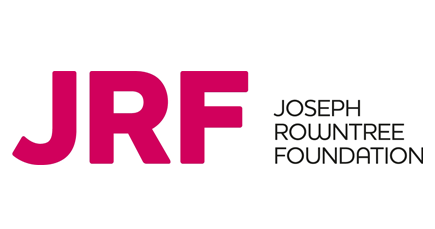Big Society Capital is launching a programme of initiatives around community investment to support local businesses to improve lives and the communities where they operate.
Rebecca McCartney, investment associate at Big Society Capital, writes:
"As we move into our new strategic focus areas, we have been exploring the role that small businesses can play in supporting communities to improve lives. And these small businesses can be vital in disadvantaged communities across the UK, employing local people and supporting the local economy. We believe that this can help address inequality in the UK by building more prosperous communities, and improve the life chances of individuals through employment and business ownership opportunities.
Yet many small businesses in disadvantaged communities are held back from realising their potential in their communities sustaining and growing their businesses. This is partly because they can struggle to access mainstream finance, even if they are creditworthy.
But there are alternative lenders that are partly meeting this need, ones that are socially motivated and deeply rooted in the communities that they serve. The leading example are Community Development Finance Institutions (CDFIs)[1]. Responsible Finance, the membership body for CDFIs, reported in its Annual Industry Report that in 2016-17, CDFI lent £67 million to 5,072 small businesses, creating 4,270 new businesses, and creating or saving 8,053 jobs. We want to celebrate this achievement but we also believe that the CDFI sector has even greater potential to meet the need from underserved small businesses. This potential has played out in the US CDFI sector over the past 20 plus years showing what is possible in the UK.
Together with partners, we believe there is an opportunity to support the CDFI sector in the UK to reach a ‘tipping point’ where socially motivated lenders in disadvantaged areas can leverage in significant capital to better meet the needs of small businesses, and strive to become a more sustainable and growing sector. We will do this by providing socially motivated capital, building knowledge and convening stakeholders.
Providing socially motivated capital
Big Society Capital is a social investor so we believe our primary role is through the use of our capital. To that end, we are establishing a national £30 million Community Investment Enterprise Facility, managed by Social Investment Scotland (SIS). As well providing capital to CDFIs to meet the demand they are seeing from underserved small businesses, the intention is for this to be a proof of concept facility. It will build a better understanding of the financial and social impact performance of CDFI lending, and test new models of funding for CDFIs that could attract other socially motivated investors and be replicated.
CDFI lending is largely funded from publically backed programmes, such as the British Business Bank’s Northern Powerhouse Investment Fund which is reaching communities across the North of England. But as we move closer to Brexit and European funding falls away with no sight of other publically funded programmes, there is an opportunity for the CDFI sector to consider more sustainable sources of capital. This will enable them to smooth their lending activities and meet the demand they are seeing from clients in-between and alongside programmes of funding.
The Community Investment Enterprise Facility will act as a match facility, providing some initial unmatched capital to the CDFIs to meet the immediate demand they’re currently unable to fulfil, and providing further capital at a later stage to match co-investment the CDFIs secure. We believe that at least a further £30 million could be leveraged into the sector alongside the facility, with the CDFIs and investors benefiting from the use of available initiatives such as the Enterprise Finance Guarantee and Community Investment Tax Relief.
To support CDFIs to secure co-investment now and in the future, Big Society Capital and Social Investment Scotland are introducing Aeris Insights to the UK which is a CDFI rating that is already widely used in the US to provide an independent assessment of a CDFI’s financial and social impact position. If successful in the UK, Aeris offers the opportunity to increase sophistication and standardisation in the CDFI sector to better attract investment.
The facility will invest in up to five CDFIs across the UK to lend to underserved small businesses that have a positive impact in the communities where they operate. It is anticipated the first round of investment will be into partners who helped develop the facility, with the intention to expand the reach over time either through this facility or by future initiatives.
Building knowledge
Alongside the provision of capital, we believe for community investment to develop further in the UK and best practices to emerge, there needs to be a robust and meaningful evidence base. For example, what the key characteristics of CDFI lending are compared to mainstream lenders, and the best way to demonstrate the causal link between CDFI lending and social impact in disadvantaged communities. This will support CDFI lending practices, better investment decisions into CDFIs and policy making to support the sector. Therefore, we are committed to supporting learning and in particular promoting increased transparency of data and lending performance.
To help us achieve these aims, we’ve commissioned the Centre for Regional Economic and Social Research at Sheffield Hallam University to undertake an evaluation over the life of the facility with a focus on financial, social and economic performance, and any shifts in the CDFI sector. The evaluation will focus on regular data outputs, case studies and reports. These will be posted in an online Knowledge Centre alongside other relevant research and reports.
Convening stakeholders
We recognise we are not alone in wanting to support the CDFI sector reach the ‘tipping point’ described above. In response, Citi and ourselves are convening the Community Investment Steering Group to bring together these interested parties, representing the CDFI sector, small business, banks, investors, foundations and thought leaders. The group will set a clear, collective vision for capitalising CDFIs to meet the needs of underserved small businesses across the UK, and the ways to achieve this vision to drive more social and economic impact in disadvantaged communities.
The Community Investment Steering Group will formally launch in Spring 2018 for one year, with a report outlining the group’s conclusions after it has come to a close. More information about its members can be found here.
We believe this programme of activities will support a shift in the CDFI sector, alongside our partner’s existing and developing initiatives, to ultimately support more social and economic impact for local communities. Keep track of these activities at www.communityinvestment.co.uk which will be periodically updated."
This article was originally posted on the Big Society Capital website.







![Northstar Foundation [for website].jpg](https://images.squarespace-cdn.com/content/v1/56b8e01e2fe13108a3df5c5a/1512481159939-EWKZCZYVP63JKQ86XC2V/Northstar+Foundation+%5Bfor+website%5D.jpg)
